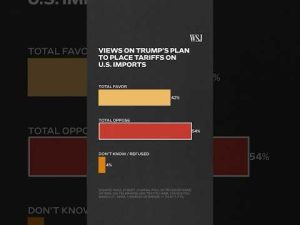In recent legal proceedings, the governance of judicial authority has been put to the test as chaos unfolded over an intriguing case involving flights to Venezuela. The crux of the matter hinges on an oral ruling made by a judge before these flights took off, amidst a backdrop of conflicting opinions on whether this verbal decision carries the same weight as a written verdict. The implications of this case extend beyond legalities, touching upon broader discussions about the power of the judicial system and the adherence to protocol.
The first point of contention arises from the argument that an oral ruling should hold just as much significance as a written one. In a judicial context, this creates an intriguing scenario. If a judge explicitly states an order, does that not bind all parties involved in the same way as formal documentation? This line of reasoning makes sense; after all, judges are not known for tossing around directives lightly. However, this case presents a dilemma: if the order is merely a spoken promise, can it be treated with the same gravity as one meticulously penned down?
As the court proceedings unfolded, a Justice Department lawyer argued that the flights did not depart until after the written order was issued, suggesting a clear line between verbal commands and legal compliance. This testimony raises further questions. If the flights had, in fact, taken off without the written order in hand, does it render the judge’s verbal ruling invalid? This question taps into a critical issue regarding the predictability and stability of the judicial process. When oral decisions can be so easily contested based on timing, how can the enforcement of law remain consistent?
The stakes are not merely legal; they reflect a societal concern about checks and balances. The judiciary must wield its power judiciously, but it also must maintain clarity. If oral rulings do not have the same authority, this could potentially open the floodgates for parties to skirt responsibility based on perceived ambiguities. In the realm of law, clarity is essential. Without it, we risk a landscape where words can be twisted, and interpretations can lead to chaos.
Finally, one can’t help but chuckle at the irony. In a world where a judge should ultimately decide what’s right and wrong, we find ourselves questioning whether a judge’s words have as much clout as a tweet. It raises eyebrows about the reliance on traditional methods in a fast-paced, instant-information society. As this case continues to unfold, it serves as a reminder that the judicial system must adapt while preserving its core principles. The stakes are high, and as this drama plays out, the entire legal apparatus must remain vigilant in ensuring that justice is not only done but seen to be done, in both spoken and written word alike.







